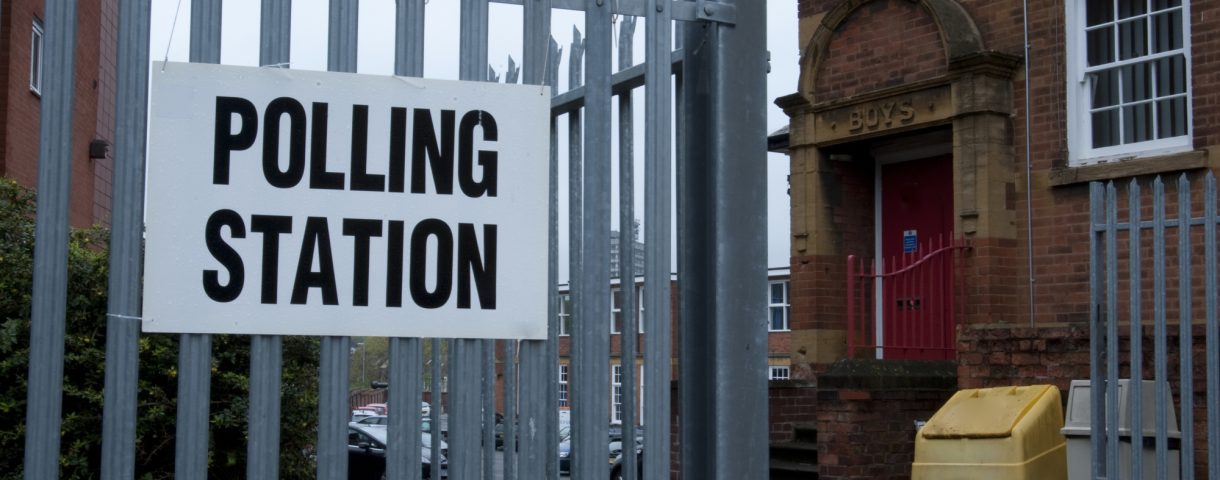Use of schools as ‘polling stations’
Local authority Returning Officers have the authority to select schools in England, Wales and Northern Ireland as venues for polling stations.
Schools, especially primary schools, are typically and easily accessible because they lie in the centre of communities, so they make an ideal location for polling stations.
The Returning Officer can request the use of any state-funded schools, including the following:
- Local authority-maintained schools
- Academies
- Community schools
- Foundation schools
- Voluntary aided schools
- Voluntary controlled schools.
All local authorities will notify schools of the decisions in their area. When a Returning Officer selects a school to provide accommodation for polling purposes, the use of the premises will not only include the voting room(s) but also access to toilets, washroom facilities, drinking water and providing a minimum level of heat.
Polling hours are from 7am to 10pm, but access will be required shortly before and shortly after the polling times.
In undertaking a risk assessment as to whether the school should be closed wholly or partially on the day of the election, you should consider the following:
- Whether the designated polling station area can be isolated securely from the rest of the school to prevent members of the public coming into contact with pupils
- The way members of the public will gain access to the polling station, including voters with disabilities (eg will voters need to cross playgrounds or walk through designated school areas to access the polling station?)
- Any other advice issued by the local authority.
Closing the school
The decision to close a school is a matter for the head teacher to determine (following consultation with the chair and/or governing body) as part of their overall responsibility for the day-to-day management of the school.
Making up the lost day because of a school closure
If a school closes on polling day, because the risk assessment has concluded it is unsafe for pupils to attend, staff could be asked to attend as normal and perform other duties. It’s sometimes possible to make up a lost school day at the end or beginning of a term. Some local authorities may consider this at the beginning of the academic year.
All types of schools need to consider the following when looking at making up for a lost school day:
- Teacher contracts – if the staff at the school are subject to the School Teachers’ Pay and Conditions Document (STPCD), then teachers can only be expected to work 190 days plus five inset days in any one academic year. Some academies, however, do not adopt the STPCD; therefore, individual employment contracts would need to be assessed to determine what arrangements would prevail in the event of a school closure day
- Notice to parents – parents would have been given notice of scheduled term dates at the start of an academic year and may have made plans dependent on those dates. Changing the term end/start dates may, therefore, impact on the arrangements made by parents or carers
- Changing an inset day – schools could consider having one of their five inset days to match a polling day to avoid an extra non-teaching day. However, in these circumstances, we’d advise school leaders to assess the overall impact of doing this on overall relations with staff, especially on part-time staff and their scheduled working days. You will also need to consult with the governing and employing bodies.
After careful assessment of all the available information and consideration of the overall impact on staff, pupils and their parents, it may be necessary (or simply more prudent) to close the school and lose a teaching day.
Planning for future polling days
Since the Fixed Term Parliament Act 2011, we know a General Election will be held on the first Thursday of May, every 5 years; however, a General Election can also be called, if, in the House of Commons, there is either a ‘no confidence’ vote in the government or a two-thirds majority vote to hold an earlier election.
Local elections will normally be every first Thursday in May, either every year for authorities that have rolling elections or every four years for authorities that have ‘all-out’ elections. Local authorities that have ‘rolling elections’ where one seat at a time, per ward, is up for election, rather than every local government seat at once, may have years where there are no elections. This is because most local authorities have either two or three councillors per ward, each with four-year terms, so there will be years when no councillors’ term is at an end.
If a by-election is called, this is more difficult to plan for, and so a school is less likely to be able to get ahead.
Other elections to bear in mind include:
- European parliament elections
- Police Crime Commissioner elections
- Schools in London should also be aware of the elections for the London Assembly and London Mayor
- Schools in Wales and Northern Ireland should be aware of their Regional Assembly elections.
About NAHT
NAHT is the leading union for school leaders’ and as a member you get access to legal support and advice, discounts and deals on your daily purchases, access to a mentoring scheme and savings on our highly-rated CPD courses and conferences. To join us, visit out membership page.

